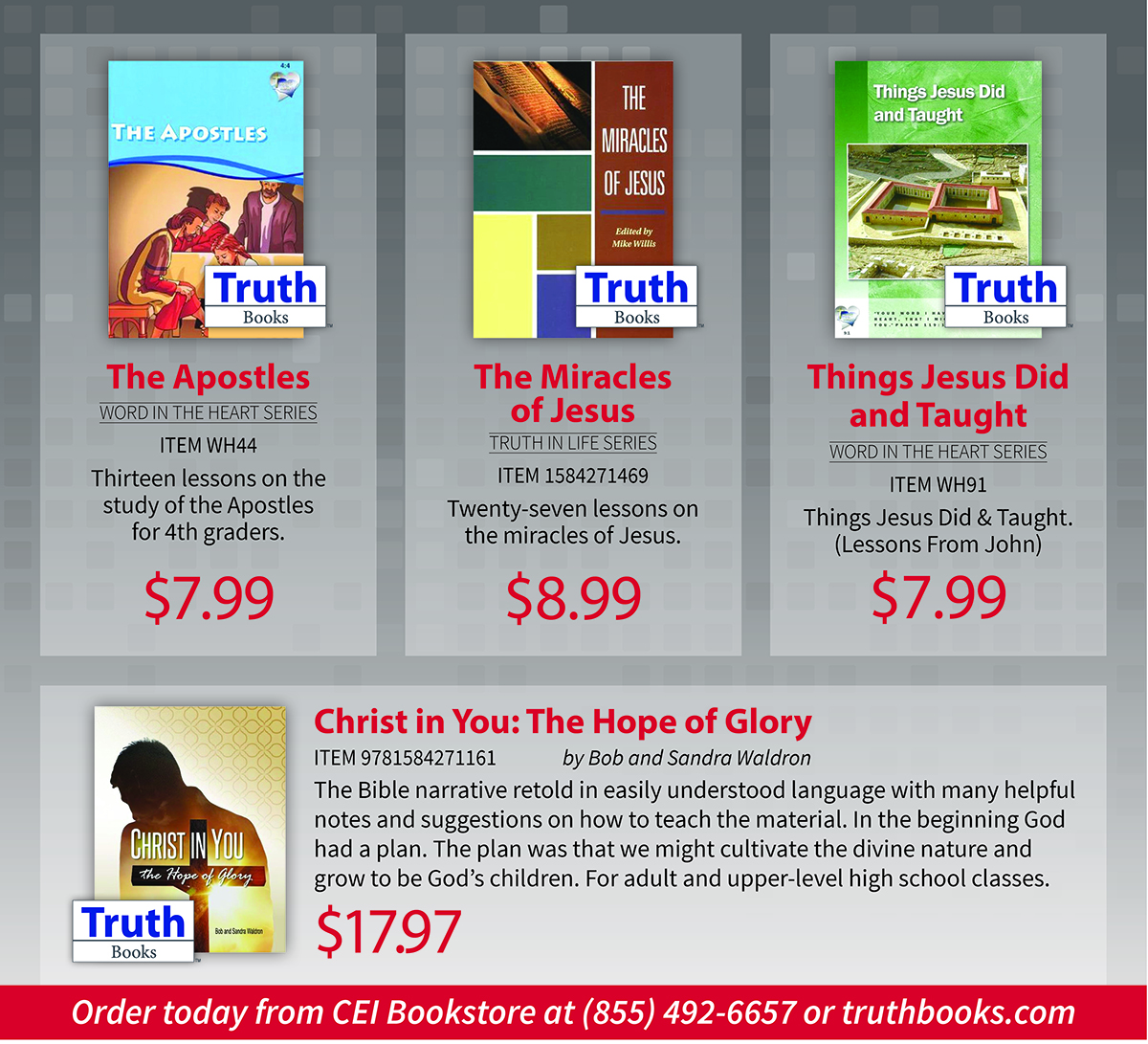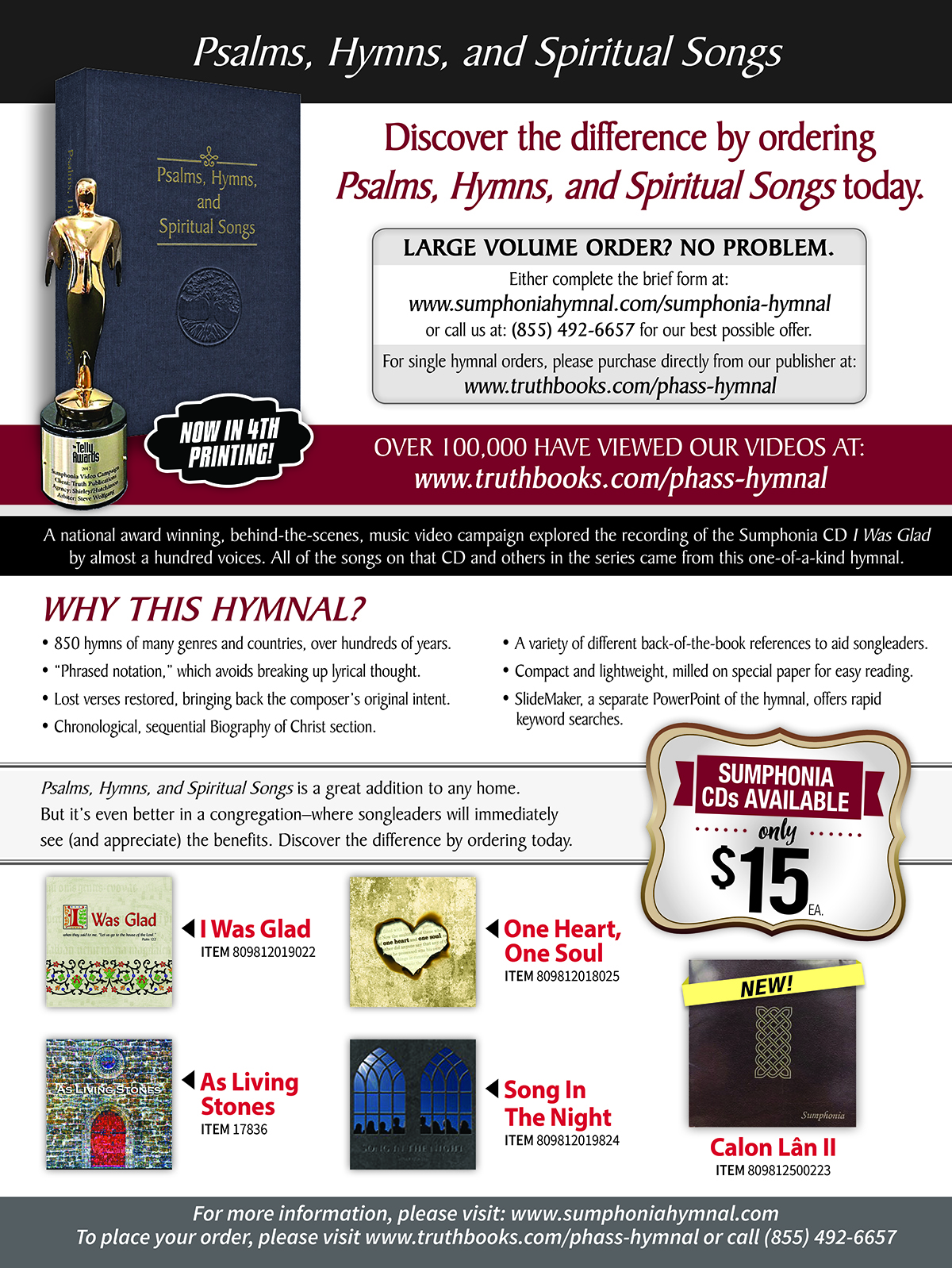

by David Flatt
Synopsis: David encourages us to consider the deeper meaning of Jesus' encounter with the Herodians. This famous scene has a far deeper meaning than merely our obligation to pay taxes.
In Matthew 21, a strange and unusual scene is described. Combining the symbols of Hanukah and Passover, Jesus is paraded through Jerusalem to the chant, "Hosanna to the Son of David! Blessed is he who comes in the name of the Lord! Hosanna in the highest!" (Matt. 21:9). The celebration of Hanukah, or the Feast of Dedication, was a commemoration of the victory of Judas Maccabaeus. The people waved palm branches as they praised Judah. Each year, Israel remembered their independence and the rededication of the temple. Yet, Hanukah was not just about the past, but also focused on the future—anticipating the time when Israel's real King would be enthroned.
The Passover commemorated the Exodus: the time when Jehovah rescued Israel from Egyptian slavery. However, like Hanukah, Passover was not just about remembering the past. This celebration was about the future—anticipating the time when God would rescue Israel by the Messiah.
In this scene depicted in Matthew 21, symbols of Hanukah and Passover are combined and connected to Jesus. He was Israel's king come to save them from oppression; albeit, He would save Israel and the world in a way completely unanticipated. Little did the multitudes know how differently Jesus would be paraded through those same streets in a few short days.
As the events of Passover unfolded, Jesus went to the temple. Surprisingly, the various Jewish sects conspired in an alliance against Jesus. Different Jewish groups were in constant competition with one another; yet, they found common ground in their hatred of Jesus. Each group asked a question, attempting to discredit and embarrass Him. Like any skilled lawyer, these carefully crafted questions were intended to destroy His reputation.
The Herodians were the first to approach Jesus. Along with the Pharisees, they plotted how to entangle Him in His words. They said, "Teacher, we know that you are true and teach the way of God truthfully. You do not care about anyone's opinion, nor are you swayed by appearances. Tell us, then, what you think. Is it lawful to pay taxes to Caesar, or not?" Jesus, aware of their malice, said, "Why put me to the test, you hypocrites? Show me the coin for the tax." And they brought him a denarius. And Jesus said to them, "Whose likeness and inscription is this?" They said, "Caesar's." Then he said to them, "Therefore render to Caesar the things that are Caesar's, and to God the things that are God's." When they heard it, they marveled. And they left him and went away (Matt. 22:15-22).
As their name indicates, the Herodians had aligned themselves politically with the house of Herod. Herod's dynasty had a storied past with the Roman Empire. The Herodians' support of Herod made them supporters of Rome. The scenario they presented was precisely stated. This legal question presented Jesus with a legal and moral dilemma.
The Herodians asked Jesus whether or not it was lawful to pay tax to Caesar. What did the Herodians mean by "lawful"? If Jesus said it was lawful to pay taxes to Rome, some might accuse Him of being a Roman sympathizer. If He said it was not lawful to pay taxes to Caesar (which was probably what the Herodians expected), they could accuse Him of treason. No matter how Jesus answered, the Herodians thought He would be discredited.
Now, the Herodians were right about one part of their analysis. Jesus was an impartial teacher of God. His impartiality and justice resulted in His correct assessment of the Herodians: they were brazen hypocrites. Little did they realize how He was about to expose their corruption.
The Master Teacher's answer to their question was surprising. Jesus asked for a coin. He asked the Herodians whose image and inscription were on the coin. Of course, Caesar's image was graven on it. Roman coins from this period had the image of Emperor Tiberius with the inscription, "Caesar Tiberius, son of the divine Augustus." After receiving the coin, Jesus told the Herodians to give to Caesar what was his and to God what was His. The answer of Jesus created quite a dilemma for the Herodians. They needed to make a moral judgment as to what belonged to the God they claimed to know and serve. The Herodians were astonished and amazed by Jesus' response. Why was that?
Perhaps we have not given this passage the attention it deserves. If all we take away from this teaching is that, in addition to serving God, Christians need to pay their taxes, we miss the point. Jesus' teaching is not limited to the issue of taxation. Yes, Christians must pay their taxes; however, the message is much more profound. Taxation is not what left the Herodians speechless.
First and foremost, this teaching is a warning against idolatry. The coin that was handed to Jesus was a symbol of idolatry. The very inscriptions on the coinage declared man to be a god. The politically-minded Herodians had aligned themselves with the rulers of this world. The Herodians had compromised their loyalty to the Creator and become idolaters. Do you remember the first commandment? It was a prohibition against idolatry:
And God spake all these words, saying, I am the Lord thy God, which have brought thee out of the land of Egypt, out of the house of bondage. Thou shalt have no other gods before me. Thou shalt not make unto thee any graven image or any likeness of anything that is in heaven above, or that is in the earth beneath, or that is in the water under the earth: Thou shalt not bow down thyself to them, nor serve them: for I the Lord thy God am a jealous God… (Exod. 20:1-5).
This commandment was first for a reason. Without following the first, one could not obey the second or any other command. Much to their surprise, Jesus exposed the Herodians for having broken the first commandment. Yes, the Herodians had become idolaters. They had deceived themselves into thinking they could gain favor with both Herod/Rome and God. Their desire to court the favor of the existing political establishment led them to reject the Messiah sent by the true and living God.
If we are not careful, we can also become idolaters. We often elect to serve the gods of this world: the gods of money, sex, and power (1 John 2:16). We can deceive ourselves into thinking we can gain the favor of this world and the Creator. Such balance is not possible. Ultimately, our idolatry is expressed through specific acts of sin (Rom. 1:18-25). Idolatry and transgression will keep us from our Creator in this life and the next. The only hope we have is to allow Jesus to reveal, examine, and expose our hearts. If we let Jesus question our hearts, we might be shocked at what the examination might reveal.
Secondly, this encounter between Jesus and the Herodians teaches us the importance of our image. The image of Caesar was not just on the coin. The image of Caesar was inscribed on the hearts of the Herodians. This had to change.
We would be wise to consider whose image and inscription is on our hearts. God endowed us with His image (Gen. 1:27), thus distinguishing us from the rest of His creation. As God's image-bearers, we should reflect His glory into the world. An idolater cannot reflect the glory of the Creator. Rather than being a symbol of the Giver of Life, idolaters are symbols of death. Thankfully, our image can be restored and renewed by faith in the Messiah. Note how Paul described renewing our image:
Put to death, therefore, what is earthly in you: sexual immorality, impurity, passion, evil desire, and covetousness, which is idolatry. On account of these the wrath of God is coming. In these you too once walked, when you were living in them. But now you must put them all away: anger, wrath, malice, slander, and obscene talk from your mouth. Do not lie to one another, seeing that you have put off the old self with its practices and have put on the new self, which is being renewed in knowledge after the image of its Creator (Col. 3:5-10, ESV).
Sins that arise from our hearts are evidence of our idolatry. God's wrath will be poured out upon idolaters. This has been demonstrated in the past when Israel would turn aside to idols. Paul warns against the punishment that will be poured out on idolaters:
Seeing it is a righteous thing with God to recompense tribulation to them that trouble you; And to you who are troubled rest with us, when the Lord Jesus shall be revealed from heaven with his mighty angels, In flaming fire taking vengeance on them that know not God, and that obey not the gospel of our Lord Jesus Christ: Who shall be punished with everlasting destruction from the presence of the Lord, and from the glory of his power (2 Thess. 1:6-9).
God's image needed to be restored in the hearts of the Herodians. If we heed this warning, God's image can be restored in us. Jesus can transform our hearts, making us into useful vessels of honor (2 Tim. 2:21). In so doing, we can become symbols of the Creator pointing to a bright, glorious eternity with Him.
Lastly, this account of Jesus and the Herodians teaches us an important lesson about order. What did the Herodians owe Caesar? What did the Herodians owe God? The Herodians knew they owed everything to God. Regrettably, this truth was not being reflected in their lives. After all, here they stood, rejecting the Savior that God had sent to rescue them.
Similarly, we accept that everything belongs to God, but often do not reflect this truth in our lives. How we choose to order our life greatly matters. While prioritizing our life is not easy, we must continuously evaluate what is most important to our families and us, and sacrifice accordingly. Putting God and His kingdom first in our lives means using our lives, abilities, and possessions to His glory. We are to use who we are and what we have to serve the Creator and help others. Only self-giving love is to characterize the lives of those who bear the image of the Creator and bring Him glory.
This encounter with Jesus and the Herodians is deep and rich with meaning. It represents a clash between the Creator and Caesar—the kingdoms of this world and the kingdom of heaven—a clash in which we are in the middle. Who will we choose to worship? Whose image and inscription is engraved upon our hearts?
Author Bio: David and his family began laboring with the Fry Road church of Christ in Houston, TX in 2019. The church website is fryroad.org. He can be reached at dflatt85@yahoo.com.

